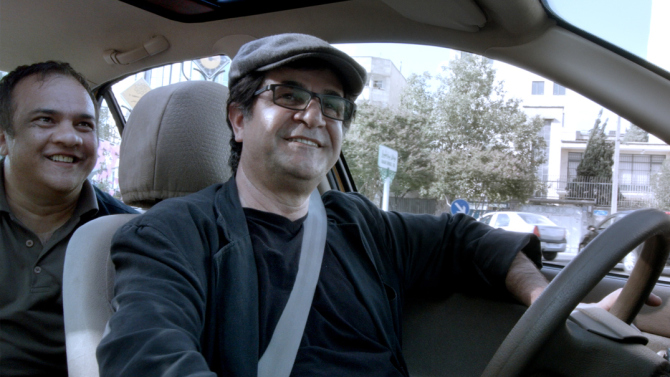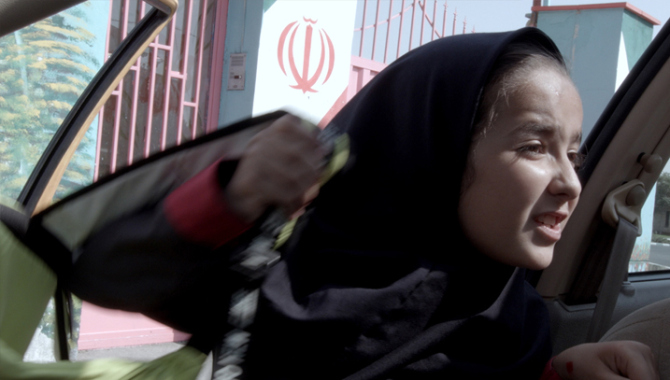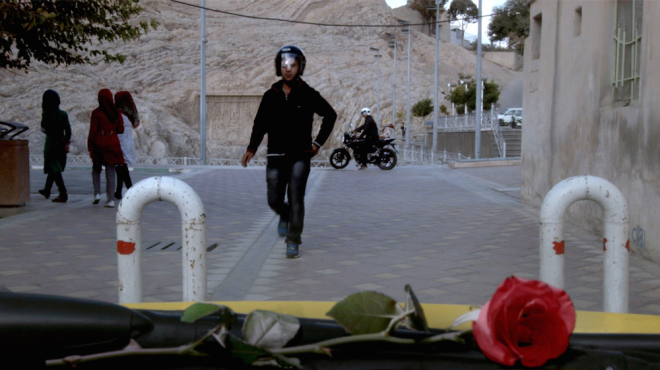Back in 2010, a Persian filmmaker named Jafar Panahi was sentenced to 6 years in prison and banned from making movies for 20 years. (Panahi was 50, so it wasn’t quite a lifetime ban.) Subsequently, and possibly due to international outcry, his sentence was commuted to house arrest, and then a sort of freedom—as long as he didn’t leave the country.
Since then, he has made three films: This Is Not A Film, Closed Curtains and, most recently, Taxi. The first is a documentary about his life under the restrictions placed on him by the Iranian “republic”. The second is the story of a screenwriter who has shut himself off from the world.
Here’s the thing about this kind of rebelliousness: As unsympathetic as I am toward those who are fighting against various nebulous oppressions in the free world, I am equally inspired by those like Panahi (and China’s Ai Weiwei) who ply their art against actual dictatorships. For all the caterwauling under the Bush administration about oppression, no artist was actually jailed, nor their families rousted. It happened once under the Obama administration, of course, to silence from who howled at Bush for eight years, but even this was a nakedly political move, and less about a threat to the country than a threat to 2012’s electoral results.
So, you gotta start by giving props: There are artists out there who genuinely put their lives on the line—and the lives of their families!—to fight genuine injustice.

I mean, it’s not like anyone would be thrown into jail for making a movie Muslims objected to in THIS country.
This doesn’t necessarily mean you’ll get a good movie, of course: Art doesn’t flourish under extreme oppression.
That said, The Boy and I really enjoyed Taxi. The premise is that Jafar Panahi, banned from movie making, now drives a taxi. But he has a dashcam—and anti-theft device, ostensibly—so that when he drives around Tehran picking people up, he can film them telling him their stories.
But there’s a bold tweaking of long Mullah noses here, since he immediately lampshades what he’s doing. The first two people he picks up have a fierce debate about the severity of punishments. (Tehranians apparently share cabs routinely, so there are often strangers in the car together. We saw this in Tales, too.) But the third person he picks up knows him, overhears the debate and says something like, “You didn’t think I’d recognize you, but I do. And I know you’re making a movie because those two people had the same argument you made in Crimson Gold!”
This guy is an odd little fellow who makes his living delivering bootleg video to people. In a cute turn, his first customer is a guy who’s ordered all kinds of trash cinema, but upon recognizing Panahi asks for help with getting the classics. Much to his chagrin, our video bootlegger says as his closing line “I’ll have season 5 of “The Big Bang Theory” next week.”
Heh

Hustling “Big Bang Theory” on the Streets of Iran.
.Sort of like Tales, we get a series of vignettes reflecting on Iranian life in general, but we also get a sense of what it’s like to be singled out by the regime. Some of this was shown, animated, in The Green Wave but it’s interesting to hear people talk about their “interrogators”. The last part of the movie concerns Panahi’s niece, a cute (if somewhat spoiled) aspiring filmmaker. She accompanies him as he tries to return a purse to some old ladies who have gone to a sacred spring because if they don’t drop these fish in the spring at exactly noon, they’ll die before the year is up.

Walking that fine line between cute, precocious and obnoxious.
In the end, he’s targeted by what looked to me to be kin of the motorcycle thugs of The Green Wave, pretending to rob him. But they mention not being able to find the flash drive, which would be the thing that actually contained the film we were watching. Doubtless staged but still rather effective.
What’s interesting about this is how cheerful Panahi seems to be. He seems to have nothing but warmth for his characters—admittedly easier when those characters are essentially your creation—even when they are rather presumptuous or obnoxious. And while he’s presenting a critique of current Iranian culture, it’s a fairly mild one. Not that he’s not pointing out serious things, just that he’s doing it in a gentle way.
But tyrants can’t stand criticism, so guys like Panahi have to be silenced. It’s cheering when they refuse to be.
It’s not a great movie, but it is a very good one, and quite entertaining given the constraints (entirely filmed from 2-3 cameras in the car). I hope it all works out for Mr. Panahi and the Iranians.

I have my doubts, though.

One thought on “Jafar Panahi’s Taxi”